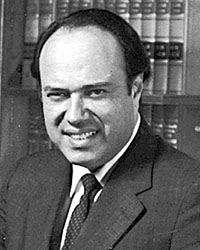In this article, I want to show that the condominium form of ownership can optimize the use of a parking lot adjacent to and owned by a religious institution. This is just one example of a creative use of condominiums and air rights.
The entire site would become a condominium. The buildings on the site would be Unit 1 and the parking lot with a construction trailer on it would be Unit 2. The religious institution would convey Unit 2 to a developer by a Unit Deed and an Assignment of Air Rights. The Master Deed would provide that the construction trailer would be replaced by a two or three story townhouse development built on the air rights above the parking lot. The reason for the construction trailer is that, in Massachusetts, undeveloped land can not be a Unit. There must be a structure with walls and a roof on the land. A construction trailer satisfies this requirement under Chapter 183A, the Massachusetts Condominium Statute.
The developer as the owner of Unit 2 needs the right, without the consent of any party, to demolish the construction trailer and to construct townhouses over the parking lot. Each townhouse would be Unit 2A, Unit 2B, Unit 2C and so forth depending on the number to be built. This will require an amendment to the master deed, an amended site plan and floor plans.
A well drafted master deed can provide for this without any problems, as long as the developer of the townhouses is able to obtain the zoning approvals (e.g., variances for height and density) required and the consent of the developer’s construction lender. While zoning is often a problem, the consent of the lender is made easier because air rights are an interest in real estate and the lender will therefore be able to obtain title insurance for the air rights.
The foregoing is obviously an over-simplification. For example, the site may presently consist of a religious school and a temple. There may be reasons to separate the religious school from the temple. To achieve this, Unit 1 could be the temple, Unit 2 the religious school, and Unit 3 the townhouse development. In any event, none of this is rocket science with the right development team!
The condominiumizing of the entire site and the sale of air rights is a way for a religious institution to gain significant funds while retaining its buildings and for a developer to acquire a valuable site which he could not otherwise acquire and develop. It can be a win-win situation for both parties.
Saul Feldman, Esq., is an attorney with Feldman Law Office, Boston, Mass.









